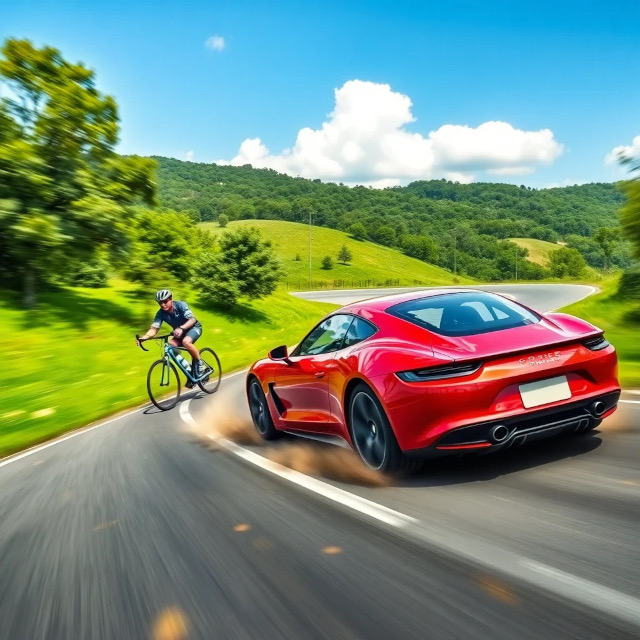「日本は自由と民主主義の国だ」という言説をよく耳にしますが、私はこれは建前に過ぎず、現実とも事実とも言いがたいと感じています。
たとえば、論理的な話をしても、それが気に入らないという理由だけで非難されたり、意見を封じられたりすることがあります。こうした状況は「自由がある」とは到底言えません。
また、多数決が民主主義だと単純に信じている方も多いでしょう。しかし、投票する人々に正確で十分な情報が提供されておらず、思考力や判断力が正しく機能していなければ、民主主義は形だけのものに過ぎません。「多数派が正しい」が正しければイジメ問題も減りそうなものですが、実際はそうなっていません。
要するに、日本は「自由と民主主義の国」ではなく、それを標榜し、夢見ている段階にある国だと私は思います。もし本気でそれを目指すならば、そこに向けて誠実に努力するべきです。違いますか?
「自然派」の幻想と石油の価値
皆さんの周りにも、「意識高い系」と揶揄されるような大人たちがいるのではないでしょうか。
たとえば、自然派を自称し、「化学繊維の衣服は着ない」「石油や石炭ではなく、太陽光や風力が良い」といった主張をする人々です。こうした意見は挙げればキリがありませんし、そういう主張をしている人々は表情はなんだかとても気持ち良さそうです。
ですが、石油は本当にすごいものなのです。
現在、ガソリンは1リットルあたり170円ほど。高くなったとはいえ、500mlのペットボトルの水より安価です。
現代のコンパクトカーなら、1リットルのガソリンで約20km走行できます。その自動車の重量は約1トンにもなります。
想像してみてください。人力車10台を連結し、それぞれに大人を乗せて引っ張る。合計約1トンの荷重です。これを自力で牽き切ったとして、報酬がたった170円分の栄養ドリンクだったら……やりますか?
まだ元気に自転車を漕いでいた40代の頃、鎌倉近くの自宅から伊勢神宮までを一日で走るなんていうことをしていました。これくらいの距離を走るには、頻繁に栄養やカロリー、水分の補給をしなければなりませんが、その補給に費やす金額は、同じ距離を自動車で移動する場合のガソリン代より大きいのです。食品の製造や運搬に石油が大量に使われている現代で、自動車よりも自転車の方が環境に優しいと言えるんでしょうか?
自然教育と自由な思考
こうした話を聞いて、不快に感じるでしょうか?それとも納得し、考え方を少し改めるでしょうか?
多くの場合、こういう話は歓迎されません。冒頭で述べたように、これは「自由な社会」とは言えない状況の一例です。さらに、自然教育と称して子どもたちに正しい事実を教えず、自然体験という名目で商業的な活動に利用するケースもあります。美しい話を創り出して現実を操作する。私はこうした行為は、ある種の「多重の罪」だと考えます。あなたはどう思いますか?
もちろん、「自動車より自転車を走らせた方が気持ちいい」「自然の中でご飯を食べると美味しい」「綿や絹の服の方が気持ちいい」といった個人的な感想を表明するのは自由です。ですが、そうした価値観を教育の場で子どもたちに刷り込むのは、やはり問題ではないでしょうか?しかもそういう大人たちが選挙権を行使する。未来を暗くしてしまいそうですね。
モノづくり塾では、偏見や先入観に囚われず、自由に発想し思考することを大事にします。何者かに操作された物語ではなく本当のことを知りたくありませんか?アレは駄目コレも駄目と言わずに明るく暮らしたくありませんか?
We often hear the phrase, “Japan is a country of freedom and democracy,” but I feel this is merely a façade, neither reality nor fact.
For example, even when you make a logical argument, you may be criticized or silenced simply because others dislike it. Such a situation can hardly be called “freedom.”
Also, many people seem to believe that democracy is simply majority rule. However, if voters are not provided with accurate and sufficient information, and if their ability to think and judge is not functioning properly, then democracy is nothing more than a hollow form. If “the majority is always right” were true, then issues like bullying should disappear—but in reality, they do not.
In short, Japan is not truly “a country of freedom and democracy,” but rather a country that merely proclaims it and dreams of it. If we are serious about pursuing that goal, then we should make sincere efforts toward it. Don’t you agree?
The Illusion of “Natural Living” and the Value of Petroleum
Perhaps you also know some adults often mocked as “pretentious types,” who call themselves naturalists, saying things like, “I don’t wear synthetic fibers,” or “Solar and wind are better than oil and coal.” The list of such claims is endless—and the people who voice them often look rather self-satisfied.
But petroleum is truly remarkable.
At present, gasoline costs about 170 yen per liter. Even at that price, it’s still cheaper than a 500ml bottle of water.
A modern compact car can travel about 20 km on a single liter of gasoline. That car weighs about one ton.
Imagine this: ten rickshaws hitched together, each carrying an adult passenger, with a total load of around one ton. If you managed to pull it all by yourself, and your only reward was an energy drink worth 170 yen—would you do it?
Back in my forties, when I was still fit enough to pedal long distances, I once rode my bicycle from my home near Kamakura all the way to the Ise Grand Shrine in a single day. To cover such a distance, I had to frequently replenish nutrients, calories, and water. The cost of that replenishment exceeded the price of gasoline needed to drive the same distance by car. In today’s world, where enormous amounts of petroleum are consumed in producing and transporting food, can we really say that bicycles are more environmentally friendly than cars?
Nature Education and Free Thinking
When you hear this kind of story, do you feel uncomfortable? Or do you find yourself persuaded, reconsidering your assumptions a little?
In most cases, such arguments are not welcomed. As I mentioned at the beginning, this too is an example of how our society cannot really be called “free.” What’s more, under the banner of “nature education,” children are often denied accurate facts, while commercial programs masquerading as nature experiences are marketed to them. This creates a beautiful narrative to manipulate reality. I see this as a kind of “layered sin.” What do you think?
Of course, it is perfectly fine for someone to say, “Cycling feels better than driving,” or “Food tastes better outdoors,” or “Cotton and silk clothes feel nicer.” Personal impressions are free to express. But instilling those subjective values into children through education is problematic, isn’t it? And then those same adults cast votes in elections. That seems likely to darken the future.
At the ZIKUU Makerspace, we value free imagination and thinking unshackled by prejudice or preconception. Don’t you want to know the truth, rather than be swayed by manufactured stories? Don’t you want to live brightly, without constantly being told “This is bad” or “That is forbidden”?

